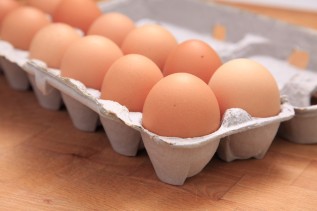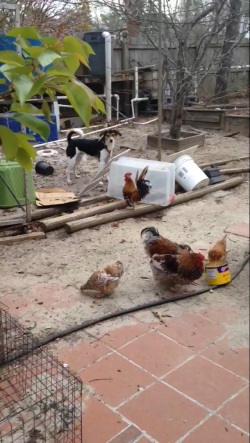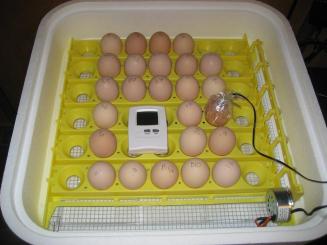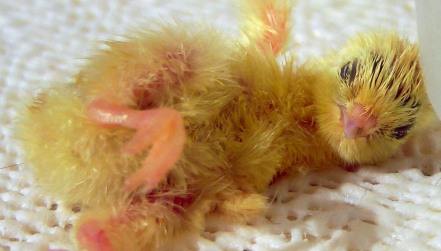The secret to a great flock of chicks is great eggs! Today I will be sharing a little bit about an industry secret used in hatching broilers and broiler-breeder flocks to help you this hatching season! Check out the list below for some tips on getting your best hatch yet and really bringing up your hatchability to bragging status this year!
Watch the calcium!

As calcium is built around the shell membrane, plastering on too much calcium will cause the pores in the egg shells to become covered. This means that any chick embryo inside is not going to be able to perform the proper gas exchange and you will have a lot more chicks never make it out of the egg. Keep your feed regular, do not amp up the calcium for laying season! Chickens are creatures of habit so don’t mess with their diet!
The secret to storing eggs

If you use an incubator rather than good ol’ sitting Silkie to do your heating work, this is a trick you need to know when it comes to getting the best hatch of eggs over a week old. Generally speaking, a hens clutch can be 8-12 eggs large and the ladies are never gracious enough to all lay at once so if you’re like me and you like to hatch multiple breeds at once — you’re out of luck. I store my eggs at 55 degrees in a styrofoam cooler and it holds up pretty well but if you wanna see a huge improvement, for eggs being stored longer than a week; turn them upside down. Any eggs stored for hatching over a week should be stored with the pointy end up rather than the large end up like you would if you were planning to incubate them right away. If you’re interested in the science behind it all, shoot me an email!
Keep Feed Fresh
Now, this is no secret by any means but in the spring this can be really hard when its raining 24/7 and even when it isn’t raining, it’s humid, especially if you’re in NC like me. It is hard to keep feed from spoiling when its left out in the rain and humidity, while some people like to ferment feed so this isn’t really a problem for them, some are not so comfortable with the idea. Here are some awesome products and quick tips to keep your feed dry this spring.
- Dine-A-Chook Feeders: These feeders were an amazing idea! This Australian based company created such a wonderful little feeder that reduces waste, is easy to refill, and keeps rain out. My honest opinion here; it’s a PVC pipe and can be made for under $15.
- Hampster Bottle: This tip works best when you only have a few birds. Using a hamster water bottle as their main water source is infinitely better than just leaving a bucket of water out. That can lead to so much disease and sickness my head starting hurting just thinking about it. If you have less than 10 chickens than 1-2 (depending on the size) hamster bottles should keep your chickens hydrated for the day. This prevents water leaking in the coop and causing a wet mess which means fewer bugs! It also helps vitamin water additives last longer and you can be assured they’re getting the benefits.



 He came to us from the shelter. Before that, he was abused and malnourished. He wouldn’t even look me in the eyes, but after sitting with him for a few hours, he finally let me pet his nose and I was sold. Cashew is a beagle – rat terrier mix (we think?) so his hunting instincts were decently sharp. When he first saw the chickens he would chase them until he had them pinned. If your dog is like Cashew, here are a few tips for training him for your chickens:
He came to us from the shelter. Before that, he was abused and malnourished. He wouldn’t even look me in the eyes, but after sitting with him for a few hours, he finally let me pet his nose and I was sold. Cashew is a beagle – rat terrier mix (we think?) so his hunting instincts were decently sharp. When he first saw the chickens he would chase them until he had them pinned. If your dog is like Cashew, here are a few tips for training him for your chickens: Again, these are just some recommendations on how to get your dog use to your chickens when they are no longer puppies or entering your family as a rescue. While you should first make sure that your dog is comfortable in his new home before starting any type of intensive training, most dogs pick up pretty quickly! You should not trust your dog to remain outside alone with your birds until you have been able to walk him, off-leash, near your birds with little to no interest in your birds.
Again, these are just some recommendations on how to get your dog use to your chickens when they are no longer puppies or entering your family as a rescue. While you should first make sure that your dog is comfortable in his new home before starting any type of intensive training, most dogs pick up pretty quickly! You should not trust your dog to remain outside alone with your birds until you have been able to walk him, off-leash, near your birds with little to no interest in your birds.
